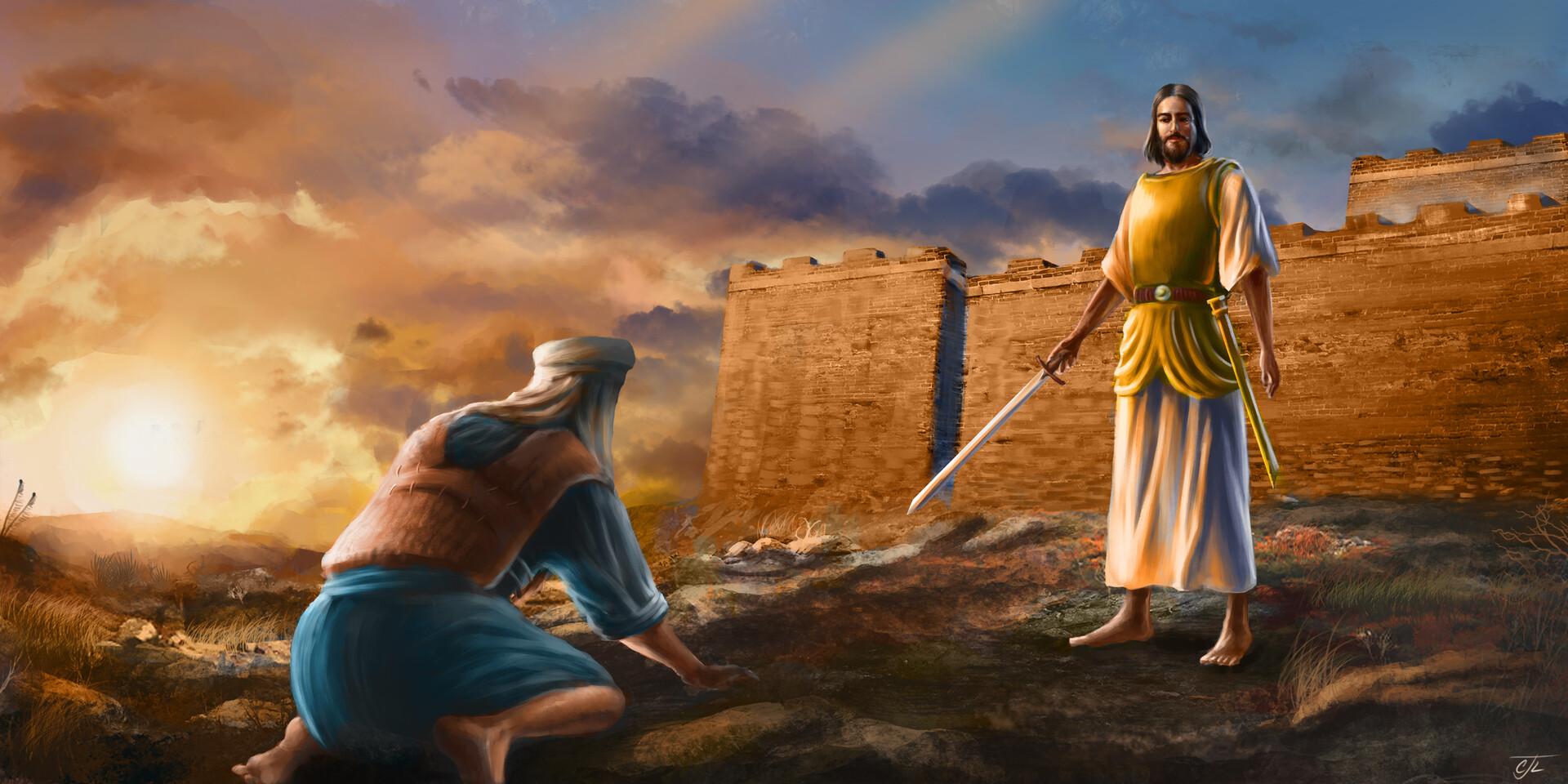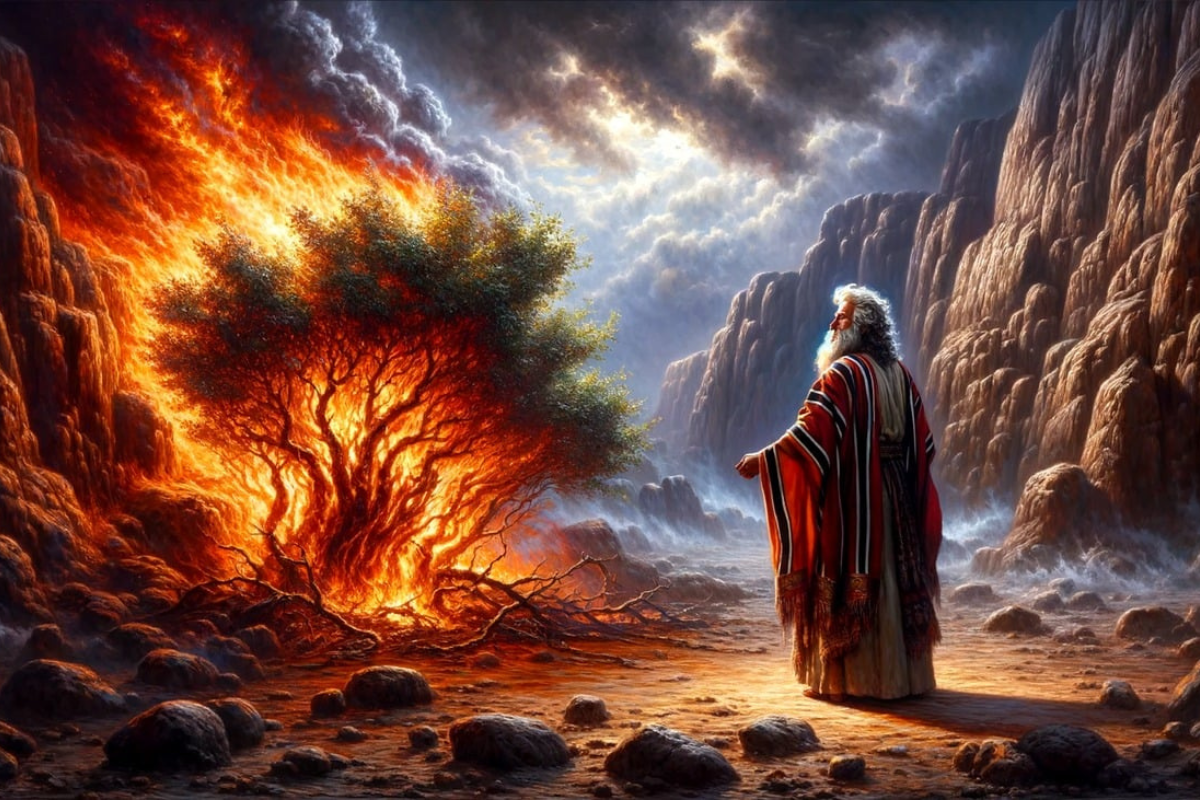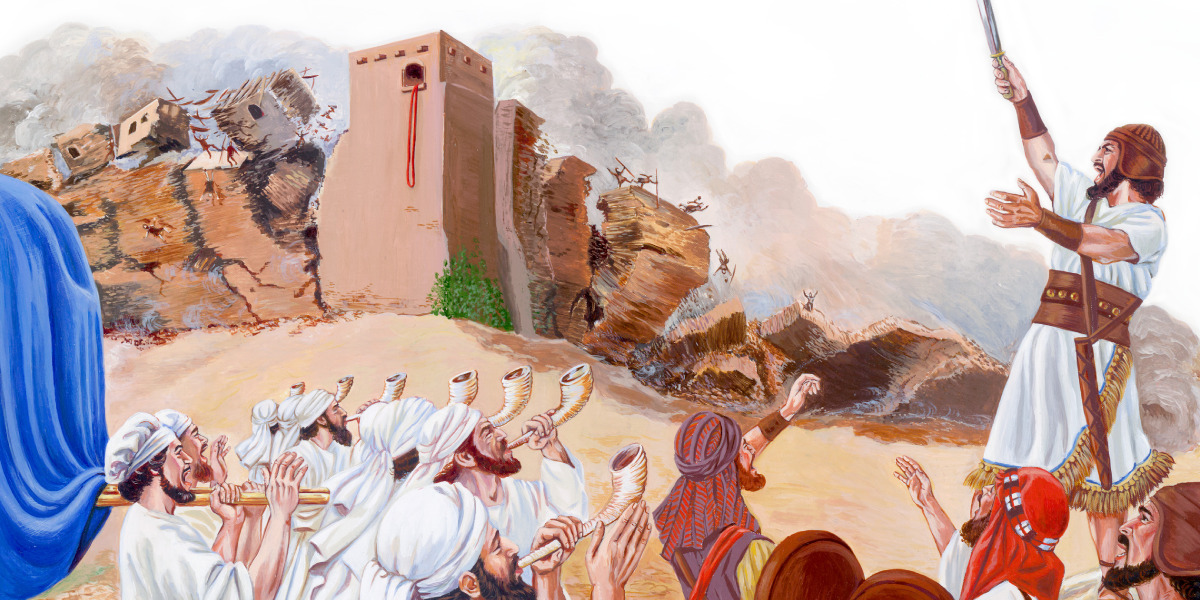Who Did Joshua See? The Divine Encounter in Joshua 5:13-6:2
In the Old Testament, moments where God appears to humanity are often poignant and filled with deep significance. One such event occurs in Joshua 5:13-6:2, which recounts Joshua’s encounter with a mysterious figure before he and the Israelites prepare to attack Jericho.
This passage helps us understand not only the book of Joshua, but also the interconnected narratives of Moses and the prophetic figure Balaam.
The Context of Joshua’s Encounter
This encounter takes place soon after the Israelites cross the Jordan River, mirroring Moses’s miraculous parting of the Red Sea. Joshua leads the people into the promised land and directs them to undertake acts of obedience, such as circumcision, to signify their commitment to God’s covenant.
Preparing for the upcoming battle against Jericho, Joshua steps into a significant moment of divine intervention. Joshua 5:13 opens a window into this divine meeting.
“And it came to pass, when Joshua was by Jericho, that he lifted up his eyes and looked, and, behold, there stood a man over against him with his sword drawn in his hand.” – Joshua 5:13
This immediate image evokes tension and curiosity, prompting Joshua to inquire,
“Are you for us, or for our adversaries?” – Joshua 5:13
This question reveals his desire to assess the intentions of this formidable figure as he prepares for war.
 The Revelation of Divine Leadership
The Revelation of Divine Leadership
The response he receives is not what he expected. The figure identifies himself as the “captain of the host of the Lord,” suggesting His divine authority.
“And he said, Nay; but as captain of the host of the Lord am I now come.” – Joshua 5:14
This declaration shifts the dynamic completely; it highlights that Joshua is not merely fighting a human adversary but is being confronted by God’s own emissary. The divine captain’s role is crucial, stemming from a lineage of scriptural encounters that include key Biblical figures such as Moses.
Joshua’s reaction is telling; he falls to the ground in worship, acknowledging the divine presence before him. This act of reverence serves as a personal encounter with God, reminding us of the weight of holy encounters and the humility required when coming face-to-face with the Almighty.
“Worship begins not only as an act but as an internal recognition of our place before God.”
Moreover, the title “captain of the host of the Lord” holds evocative significance. The term connotes leadership and authority over celestial forces, further affirming that Joshua’s encounter is indeed a divine one.
It also invites readers to consider other appearances of God in the Old Testament, illustrating that God has a consistent method of revealing Himself in human-like forms. Understanding this helps dismantle arguments that claim such manifestations emerged only in the New Testament.
The Angel of the LORD and Its Significance
This highlights the significance of the “Angel of the LORD,” a key theme in the Old Testament that shows God’s direct intervention in human affairs.
In Joshua’s story, this being acts as a bridge between heaven and earth. It emphasizes that God’s plans often unfold through intermediaries, sometimes appearing as ordinary people.
Moreover, the scriptural connections to the book of Numbers come strikingly into focus. In Numbers, we find the prophet Balaam, who experiences God’s communication through unusual means, notably through a talking donkey.
“God often employs unconventional paths to execute His Divine Will.”
This illustrates that God’s sovereignty transcends human awareness and traditional communications, revealing how God’s purposes are far-reaching and often misunderstood.
 The Intrinsic Link to Moses
The Intrinsic Link to Moses
While examining Joshua’s profound experience, it’s crucial to draw parallels to Moses. Both figures encountered God in a way that profoundly impacted their leadership and mandate.
Like Moses at the burning bush, where he was commanded to remove his sandals for standing on holy ground, Joshua receives similar instructions. This context enriches our understanding of sacred encounters and the reverence owed to God.
“The place whereon thou standest is holy ground.” – Exodus 3:5
In Exodus, God reveals Himself in a burning bush, providing Moses with the commission to lead His people to freedom. Now, in the book of Joshua, we see the continuity of God’s active involvement in leading Israel.
Just as Moses obeyed, so does Joshua, indicating that the essence of their leadership rests firmly in their obedient relationship with God.
Obedience to Divine Command
After Joshua removes his shoes in reverence, the captain of the Lord’s host delivers crucial instructions. The subsequent verses in Joshua 6:1-2 depict the situation at Jericho, a city tightly shut against the approaching Israelites.
“Now Jericho was straitly shut up because of the children of Israel: none went out, and none came in.” – Joshua 6:1
At this moment of uncertainty, the Lord speaks to Joshua, promising victory over Jericho and its king. This shift into a divine battle strategy highlights an essential theme: victory comes from divine instruction rather than mere military prowess.
 God’s Unfolding Strategy for Jericho
God’s Unfolding Strategy for Jericho
In the verses immediately following Joshua’s encounter, God reveals His battle plan for the fall of Jericho. This highlights the strategic nature of divine guidance. His guidance provides the blueprint for overcoming Jericho, a city that initially appears insurmountable.
“See, I have given into thine hand Jericho, and the king thereof, and the mighty men of valor,” – Joshua 6:2
This message resonates profoundly—when faced with seemingly impossible challenges, being in tune with God’s voice and obeying His direction can lead to triumph.
This interaction not only fortifies Joshua’s resolve but also serves as a reminder to Israel of God’s unwavering promise. He designs His plans with precision for the success of those aligned with Him, even when they are beyond human comprehension.
Joshua leads with the understanding that he serves under God’s command, which further underscores the importance of their covenant relationship.
Finding God Through the Scripture
Encountering the figure in Joshua 5:13-6:2 deepens our understanding of Biblical narratives. It reminds us of God’s active presence in our lives.
For today’s believers, this passage encourages active and expectant engagement with Scripture. We are called to seek fresh insights and divine wisdom, no matter where we are in the Bible.
Recognizing God’s various representations throughout the Scripture—whether as heavenly hosts, angels, or a man with a sword—invites us to reflect deeply on theology.
“Engaging with God’s word is a lifelong journey that unveils divine wisdom.”
This rich tapestry of God’s interactions with humanity reaffirms that divine encounters can happen anywhere, at any moment. Embracing this truth fosters a deepened faith and a more profound relationship with God, allowing us to navigate our own journeys with assurance.
In summary, the divine captain’s encounter with Joshua reminds us that our struggles prepare us for breakthroughs when we align with God’s will. Like Joshua, we are called to meet God in our uncertainties. We must be ready to listen, obey, and step into the battles He has already equipped us to win.
If you want to delve deeper into the intricacies of the Scripture and find out why all things are possible with God, we encourage you to check out this article. God bless.
WATCH THE VIDEO
























Recent Comments